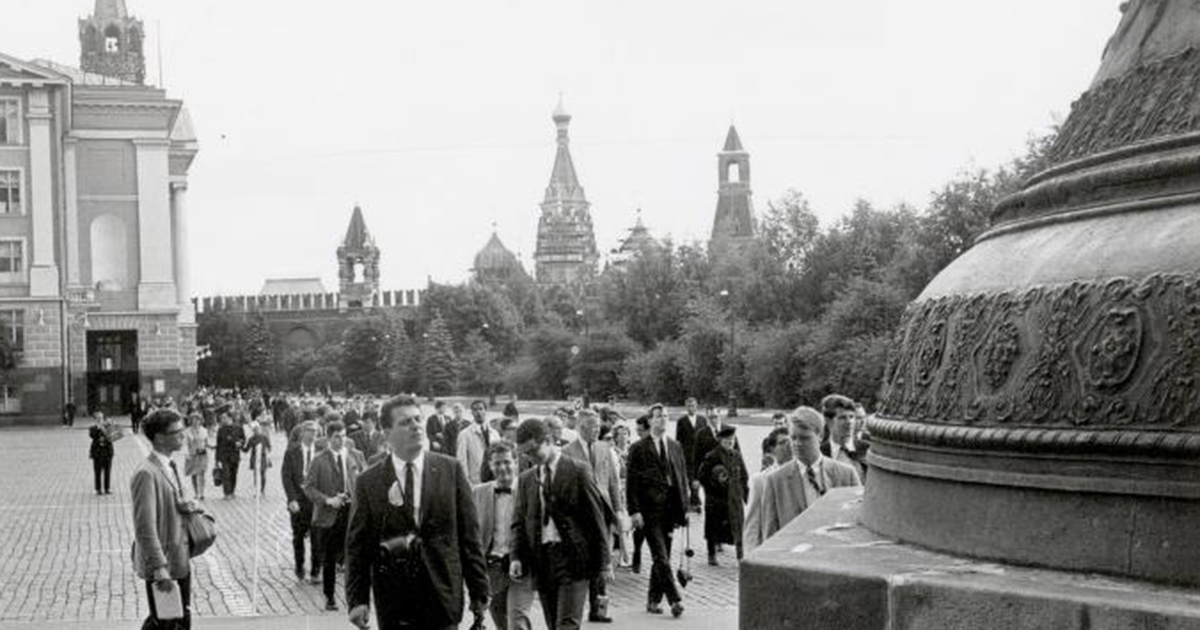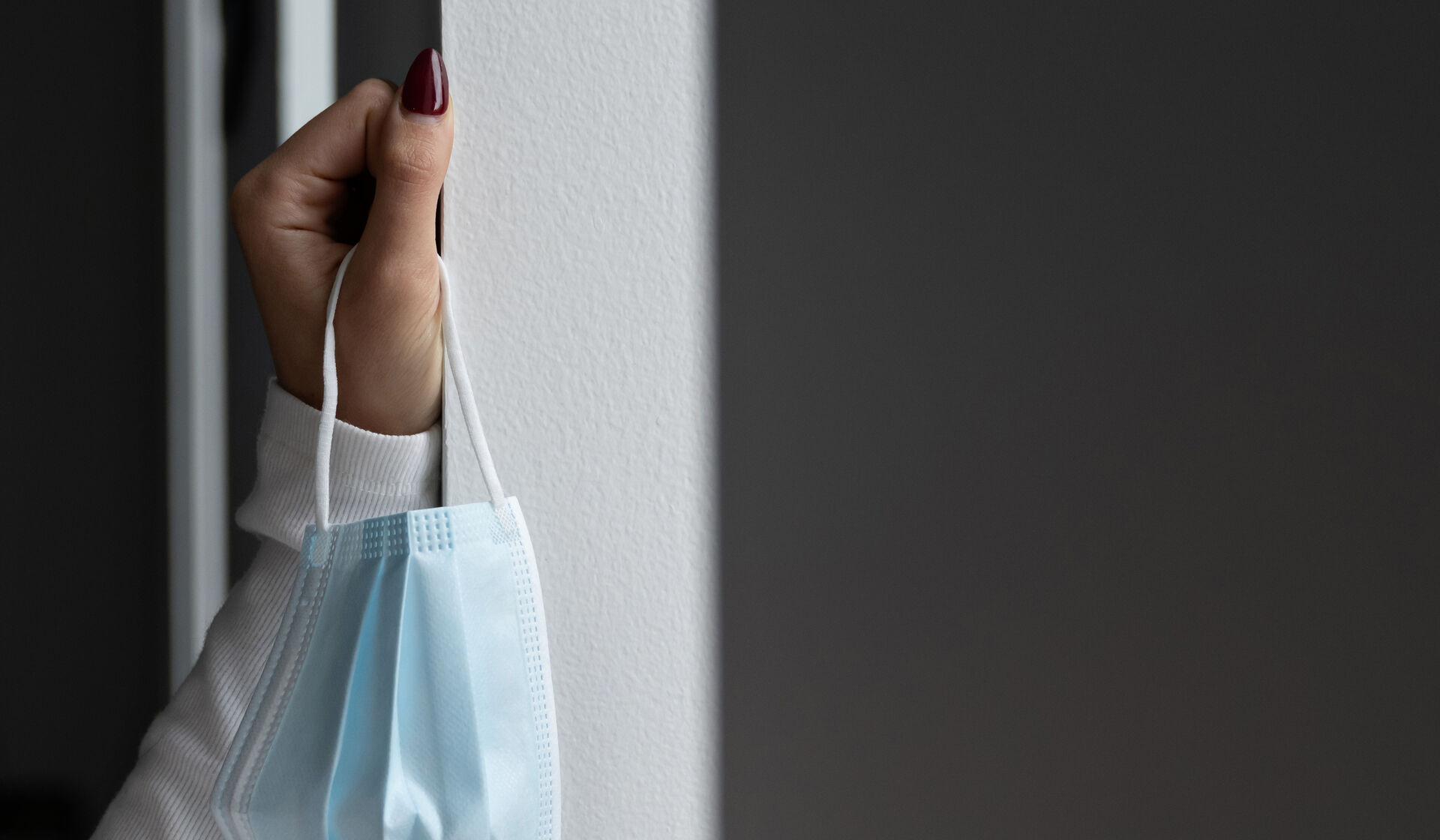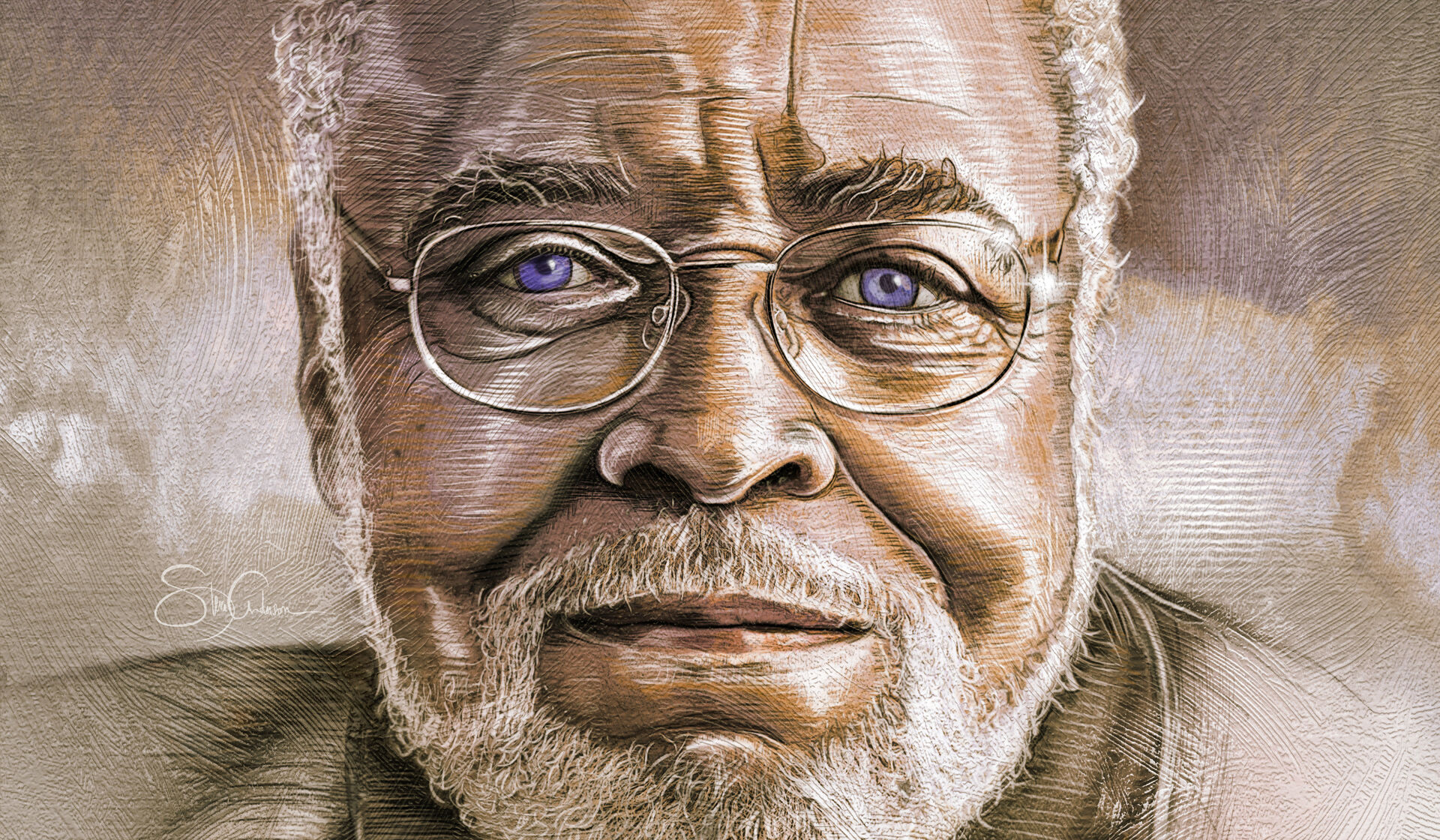On May 15, 1967, nearly five dozen members of the U-M Men’s Glee Club boarded a bus at the Michigan Union to embark on an eight-week world tour. Many of them had never traveled west of the Mississippi before, let alone to the other side of the world.
The tour’s itinerary involved more than 30 flights, including scheduled performances in Japan, the Philippines, Thailand, India, Sweden, France, and England.
It also included one particularly historic stop in Moscow during the Cold War. That leg of the journey came four weeks into the tour, directly after the glee club’s stop in India.
“We went from a dry 112 degrees to a wet 55,” says Donald Sanderson, ’68, a “clubber” who was part of the 1967 tour. “The contrast in the atmosphere was just as stark. The free air of India was exchanged for tangible oppression in Moscow.”
Terry Bangs, ’66, MA’67, remembers a briefing at the U.S. Embassy shortly after they landed. “They were basically telling us to be careful about our behavior and that we were probably being watched,” he recalls. “They told us that as representatives of our country, the Soviets would like nothing more than if we embarrassed ourselves. We nodded and listened, but we were also, you know, 19- and 20-year-old boys.”
On their first night, mandatory escorts from local youth groups accompanied the clubbers whenever they left the hotel (where the Glee Club members believed their rooms were bugged). When Bangs’ escort asked his group of friends what they wanted to see upon venturing outside, all said, “the Kremlin.”
Bangs remembers going to the subway stop, which doubled as bomb shelters. “So to get to the train, we took the longest escalator down I’ve ever been on.” After six or seven stops, they disembarked at Red Square. “In the middle of the Cold War, we were in the belly of the beast,” he recalls. “It felt like being in a diorama—like it couldn’t be real, but it was real.”
As you might expect, vodka was consumed, and there was at least a hint of intrigue: one female guide told the club’s accompanist of her wish to go to America, leading his fellow clubbers to warn him it might be a trap (one he then avoided). But they also visited Lenin’s tomb; saw a Bolshoi Ballet performance; and, when they traveled to Leningrad (now St. Petersburg), checked out the Hermitage Museum.
The club’s last night in the Soviet Union was one of the most memorable. “The concert in Leningrad was before one of the most enthusiastic audiences of our tour,” says Sanderson.
“I was doing a solo in the concert, in a crazy number called ‘The Pirate Song,’” says Steve Ramsey, ’67. “It was this gleeful, funny song where I’d play this Captain Hook character, and I’d come rushing out from behind the risers wearing a bandanna and an eyepatch and an aluminum foil hook. So I came out and sang this song, this silly little vaudevillian number … and the place goes ballistic.”
What got an even stronger reaction was the club’s performance of the spiritual “Ain’t Got Time to Die.”
“They would not let us off the stage,” says Bangs. “The audience insisted on hearing it again and again. We must have done it three or four times, and they just kept shouting ‘More, more, more!’”
Despite this affection, many clubbers—unnerved by the sense of constant scrutiny—were more than ready to move onto the tour’s next stop, Helsinki.
“When we were in Russia, we felt that cloud over us and that oppression,” says Bill Tiffan, ’68. “When we left, everyone on the plane cheered.”
“Some in the group literally knelt and kissed the tarmac upon deplaning,” says Sanderson. Adds Ramsey, “Looking back now, you almost can’t believe you were fortunate enough to go around the world singing with these 56 men. And for many of us, that bond is still strong.”
Jenn McKee, ’93, worked for more than a decade as a staff arts reporter for The Ann Arbor News. She is now a freelance writer whose work has appeared in numerous publications.





